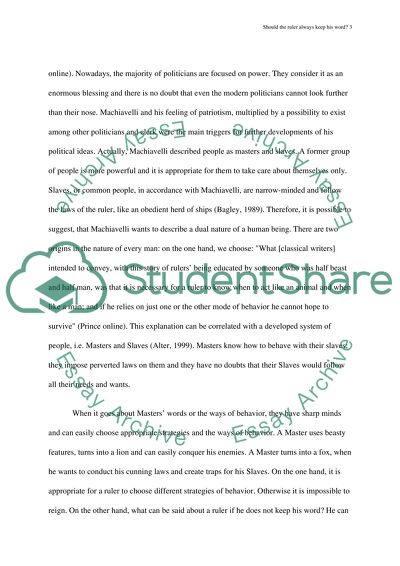Cite this document
(“Should the Ruler Always Keep His Word Essay Example | Topics and Well Written Essays - 2250 words”, n.d.)
Should the Ruler Always Keep His Word Essay Example | Topics and Well Written Essays - 2250 words. Retrieved from https://studentshare.org/philosophy/1454046-should-a-ruler-always-keep-his-her-word-discuss
Should the Ruler Always Keep His Word Essay Example | Topics and Well Written Essays - 2250 words. Retrieved from https://studentshare.org/philosophy/1454046-should-a-ruler-always-keep-his-her-word-discuss
(Should the Ruler Always Keep His Word Essay Example | Topics and Well Written Essays - 2250 Words)
Should the Ruler Always Keep His Word Essay Example | Topics and Well Written Essays - 2250 Words. https://studentshare.org/philosophy/1454046-should-a-ruler-always-keep-his-her-word-discuss.
Should the Ruler Always Keep His Word Essay Example | Topics and Well Written Essays - 2250 Words. https://studentshare.org/philosophy/1454046-should-a-ruler-always-keep-his-her-word-discuss.
“Should the Ruler Always Keep His Word Essay Example | Topics and Well Written Essays - 2250 Words”, n.d. https://studentshare.org/philosophy/1454046-should-a-ruler-always-keep-his-her-word-discuss.


